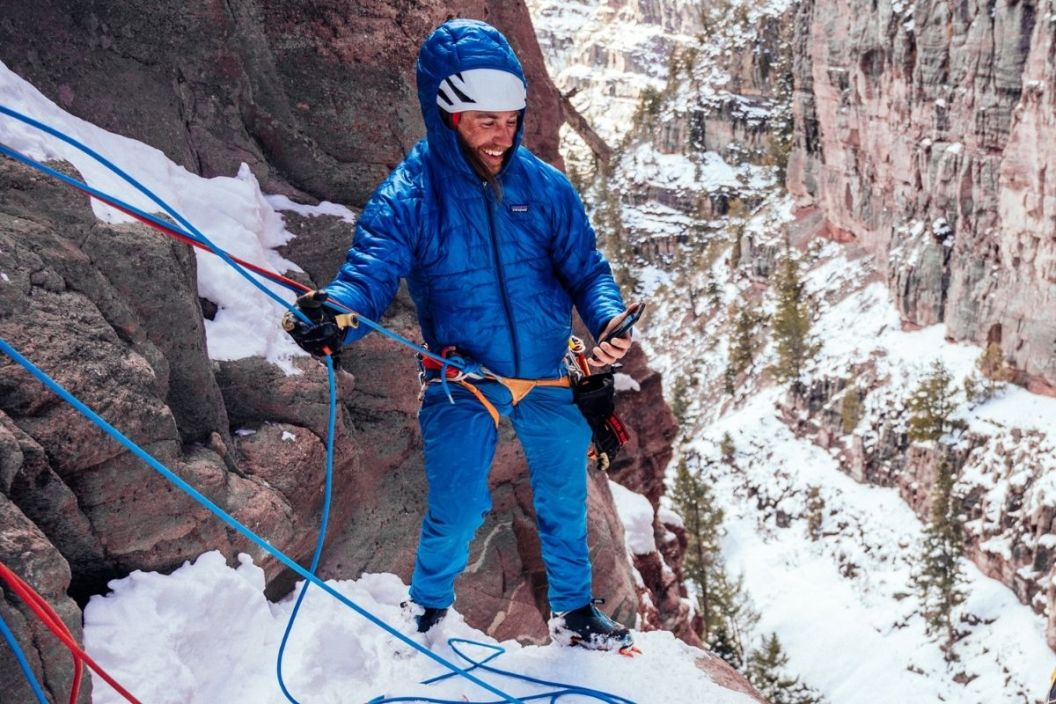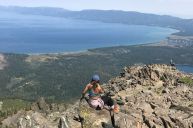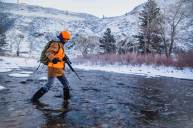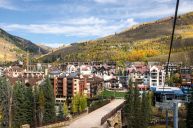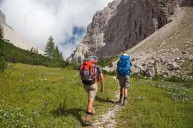Chris Brinlee Jr. is living his best digital-enabled nomadic life. This talented, multi-disciplinary creative and athlete takes the modern, millennial lifestyle to the next level. Having traveled close to 20 countries, Brinlee draws from his experiences to provide authentic storytelling that gives readers insight to worlds unexplored by most of us. He's an expert climber and professional photographer whose adventures and expeditions cultivate inspiration from the evolution of his skill and expertise. "There's a language of the mountains there that transcends what we vocalize," he told Wide Open Roads in the midst of breaking down his knowledge of the climbing realm. We spoke with him on all things ice climbing, mountaineering, and alpinism, learning more about what they are, their differences, what they entail, and where novices should begin.
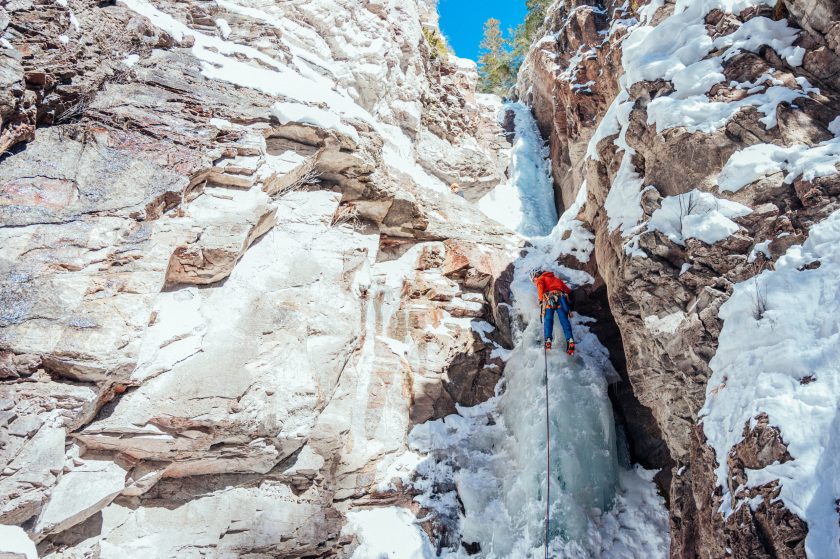
via Chris Brinlee Jr.
What's the difference between snow climbing and mountaineering?
The way I think about that is that at the top of this umbrella, you've got climbing. And that can encompass on the rock spectrum: bouldering, sport climbing, trad [traditional] climbing. Then on the other side, you've got mountaineering. And within mountaineering, there are also several disciplines. I tend to think of myself as an alpinist or an aspiring alpinist, which is essentially to say that I primarily focus on objectives that have more technical components. Versus what general mountaineering might be perceived as oftentimes is more snow climbing, maybe even a little bit of rock scrambling.
So what does alpinism entail?
With alpinism, you might often be using two tools to transition between snow, ice, and rock. I think about it as the combination of three different climbing disciplines when applied to the mountains: still climbing, ice climbing, and rock climbing. With all of those, you've got to be self-sufficient. The ethos behind alpinism is moving fast and light, utilizing the minimal amount of equipment to move as efficiently as possible. So the objectives themselves oftentimes are much more committing in nature than general mountaineering objectives because you've got these technical elements. And it requires more equipment that requires significantly more skill to utilize them to be able to get up these different types of mediums.
Is it important to be knowledgeable in other disciplines in order to become an expert alpinist?
You can get practice for all of those disciplines by alpine rock climbing in the summer, ice climbing in the winter, general mountaineering where you might have glacier travel or snow traveling, or just general winter camping. All those components are required or necessary, and so it's important to practice those other disciplines. With alpinism, you're combining all of those different skill sets into a singular objective.
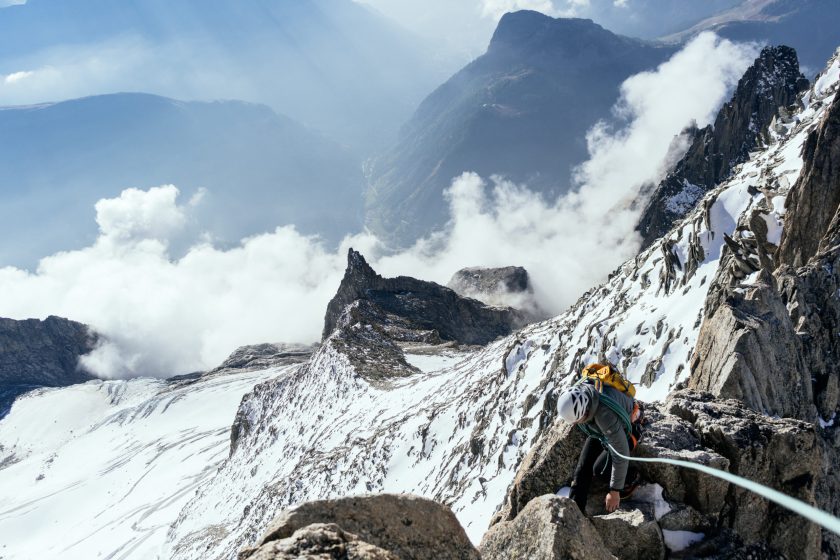
via Chris Brinlee Jr.
How should beginners approach learning how to climb?
There are different ways to approach it. General backpacking skills- those are really relevant because you got to be used to carrying a pack on your back. You also have to know how to camp and cook food in the wilderness. All those skills are definitely applicable and transferable. And so for somebody who's kind of like me and previously had never done any of this, I think backpacking is a really great place to start. If you're already a backpacker and looking to expand your skill set and your abilities into more technical endeavors to stand on top of stuff instead of walking through valleys or overpasses, I think that a general mountaineering course is a good way to do that.
What is the difference between a guided climb and an instructional course? And which should the beginner take first?
There's an important differentiation between a guided climb and an instructional course. They're roughly the same price and might take the same amount of days. On a guided climb, they're going to teach you the basic skills that the guides need you to have to be able, so that they can mitigate your risks and you can stand on top of a summit. But it doesn't serve a whole lot of purpose. Beyond that (and it doesn't typically facilitate people becoming self-sufficient, which I think is a really important thing to have in the outdoors), I recommend people to instead prioritize their resources towards an instructional course. If they're going to spend money, they might as well spend it on something that is going to be primarily focused on building those skills and experiences. And typically, you're still going to summit some type of objective from that.
So where in the world have you gone alpine climbing?
I lived in New Zealand for about 11 months with the intention of pursuing technical routes in a pretty remote arena. The Southern Alps are really rugged and pretty tough to get into, and there's a lot of technical terrain. I've done a decent amount of climbing in the European Alps, which is actually known as the birthplace of alpinism. It's where climbing originated, and so that's a really special place to go and climb. I've also climbed quite a bit here in the U.S.
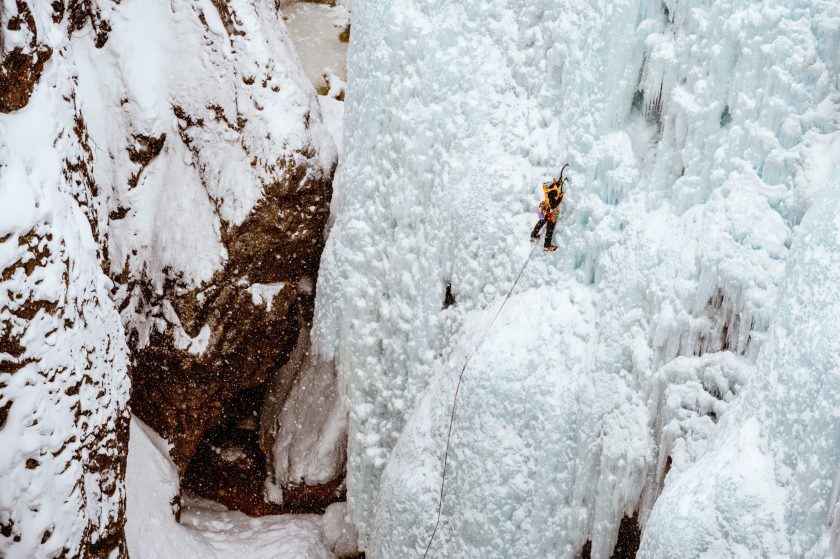
via Chris Brinlee Jr.
Where are some of the best places to climb in the U.S.?
We've got a lot of really amazing terrain, even in the Lower 48. There's really fantastic mountaineering and technical alpinism in Colorado. You can even find some in the Sierra in California. Sierras are particularly known for their granite, alpine climbs. But during a short window in the spring and autumn, you can actually get on routes that I would define as alpinism where you're ice climbing rock. There aren't as many of them as you'll find in Colorado, Montana, Wyoming... pretty much anywhere in the Rockies... But there are tons of places in the U.S. where you can just drive to, especially if you live anywhere in the West within days worth of time you can drive to and also a lot of stuff in the Cascades and Washington in particular.
How do you best prepare for a climbing trip?
I make a spreadsheet for literally every specific trip I go on based off of a template for a specific type of trip. I have these master spreadsheets for winter mountaineering in the Sierra, for a climbing trip in Nepal, for alpine rock climbing in California, for ice climbing in whatever. I'll have the gear listed out by category, the number of each item that I need, the specific item, the weight, what I'll be bringing, and what my partner will be bringing. My spreadsheets also list travel information, including any sort of logistical tidbits that could be useful to have quick access to- I'll put those on their own sheet within... Having a really dialed sheet to kind of get everything lined up makes the entire process of planning go much smoother.
And how would you advise beginners to plan their first climbing trips?
There are so many different ways to approach it. If somebody is interested in trying ice climbing, I would just say to go up and try it. Find an ice festival that's offering clinics or a guide service who can take you out for a day. It's a lot cheaper to do a day trip where you learn to climb than it is to take a seven-day mountaineering instructional course. It's kind of a nice quick introduction to find other people who are doing stuff that you're interested in and ask them to take you out and mentor you. I think that is a really important part of these disciplines. It's often overlooked and hard to come by. Having that expendable income can also be difficult... So finding people who are willing to offer that mentorship or for any reader who does have those skills and experience and is able to mitigate risk and appropriate measures to kind of pay that forward as well and to help bring more people into the fold is really important.
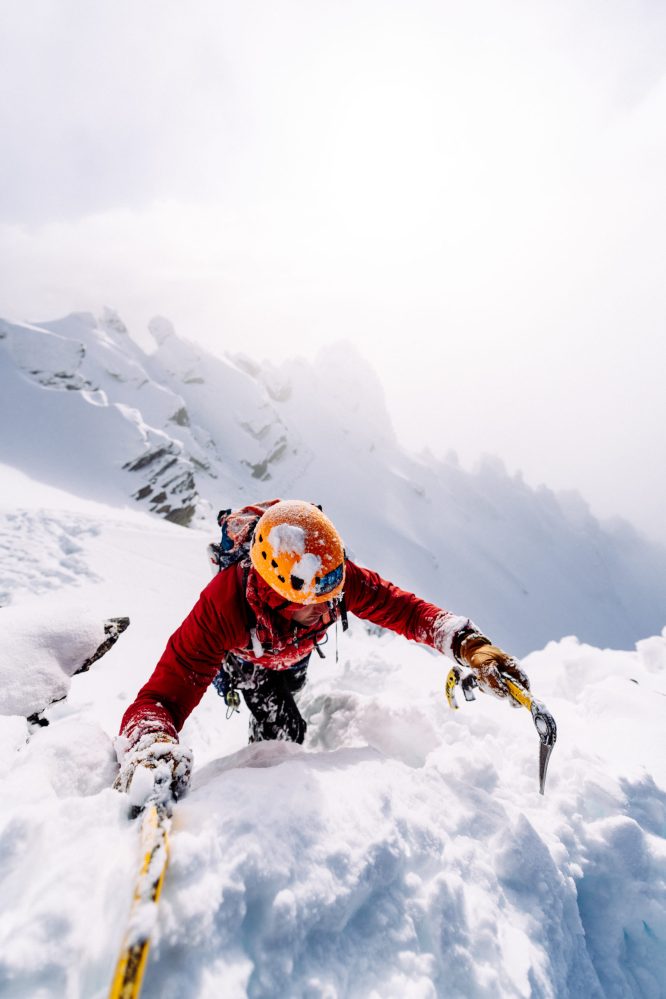
via Chris Brinlee Jr.
Have you ever been in a dangerous situation where your physical fitness was an important factor in your safety while climbing?
I had kind of a pretty big rude awakening in spring 2017. I almost died in an avalanche while doing the first traverse of this ridgeline in Alberta, Canada. It painted a lot of lessons for me in a very clear way, as my partner and I walked away completely physically unscathed, probably just a little malnourished. But we had this very traumatic experience that could have gone very, catastrophically wrong. We both, without hyperbole, literally almost died. And I think a lot of that risk could have been mitigated if I'd been fitter, a better nutrition program, and planned my food for the objective itself better. Had all these aspects been tied into that, that risk could have been mitigated through improved fitness.
What would you say is the most difficult part of training/preparing for a climb?
The most difficult part can be starting. I find that when I have been more objective-oriented and I'm transitioning back into a training period, I can be a bit hesitant and reserved- not wanting to get back into it because I think it's going to be painful or hard. I find myself having some resistance at first. But as soon as I take that first step after lacing on my shoes on the first day back, I'm like, "Oh, this is exactly what I needed." So it can be difficult to formulate that structure and get into the routine at first. But once you have it, I find that it's very beneficial and almost easy to maintain. Like I said, it doesn't take a huge time requirement. I'm sure just about anybody who doesn't have dependents can find an hour a day to integrate training into their life. And the benefits that we reap from it are massive.
Is climbing/mountaineering for everyone?
I think that anybody who has even a remote interest in trying ice climbing in particular, should. Mountaineering is a little bit different. There's more commitment in the sense that you've got to go to these places with snowy mountains in the winter, and you might be out there for multiple days. And that's not going to be for everybody. It's really hard. But, on the other hand, you can go do it in an afternoon. There are places where you can literally walk up to it, and you don't have to have these crazy huge endeavors or approaches. I think spending a lot of time in the Ouray Ice Park, which is kind of this mecca- there are toddlers who are trying it for the first time. One of my favorite people in the world is a woman named Bobby, who is 76 years old. She's still climbing ice, and I go ice climbing with her. Literally anybody who appreciates the outdoors and is interested in having a dynamic human powered experience that is really unique in the sense that it's movement unlike anything else, a medium that is temperamental and only exists in certain places certain times of the year- it's just incredibly dynamic, unique, beautiful, aesthetic, and fun. I think anybody who even has the remotest interest should certainly give it a try.
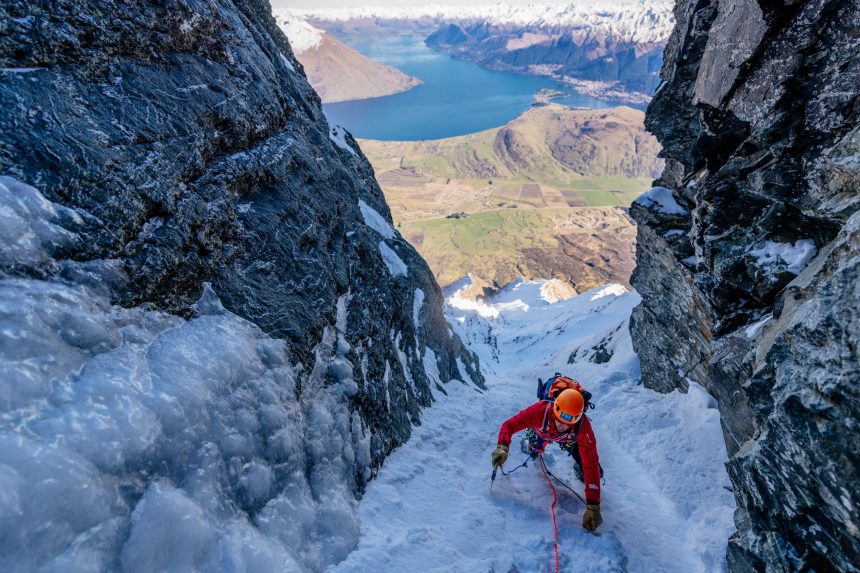
via Chris Brinlee Jr.
Have you ever been ice climbing? Share your experience with us on our Wide Open Roads Facebook!
